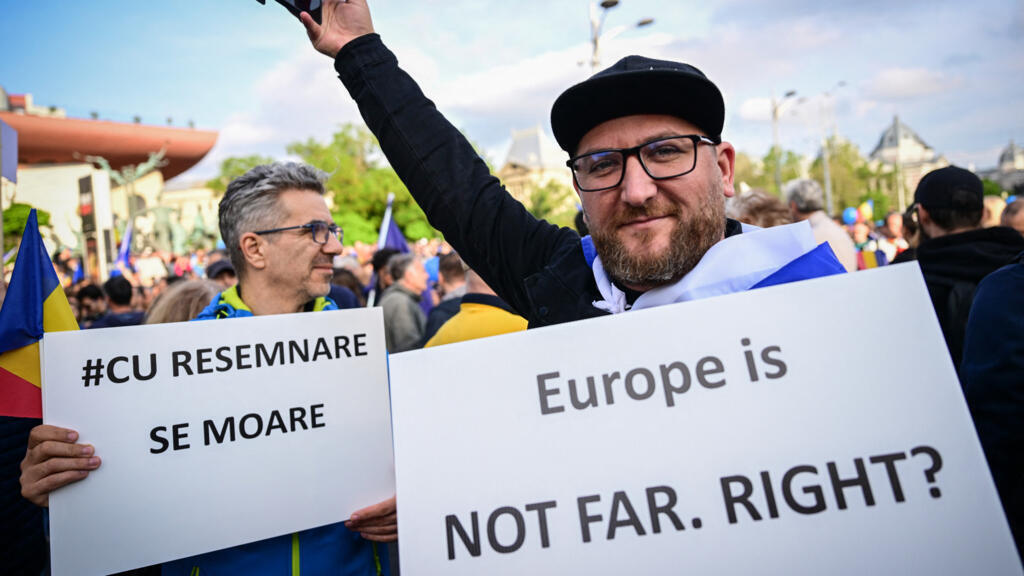
As the UN marks the International Day of Democracy on Monday, the global body called for renewed commitment to civic freedoms – but fresh data suggests Europe, long seen as democracy’s safe zone, is now one of the regions where those freedoms are most under strain.
The International Institute for Democracy and Electoral Assistance (IDEA)’s Global State of Democracy 2025 report says 94 countries – more than half of those assessed – have declined in at least one key aspect of democratic performance over the past five years.
It warns of setbacks in judicial independence, press freedom and electoral integrity. Those concerns were echoed at the United Nations.
Marking the International Day of Democracy, UN Secretary-General António Guterres praised “the courage of people everywhere who are shaping their societies through dialogue, participation, and trust”, saying such efforts are vital “at a time when democracy and the rule of law are under assault from disinformation, division, and shrinking civic space”.
Since 2014, more countries have slipped backwards than advanced on civil liberties.
IDEA calls this “modern democratic backsliding” – elected leaders using legal means to weaken checks and balances from within. Freedom of expression has declined in 37 countries over the past five years, while media integrity fell in 33.
By contrast, just 17 and 10 countries respectively improved.
Global decline in freedom of expression over last decade, watchdog warns
Backsliding in central, Eastern Europe
IDEA points to sustained pressure on three pillars of democracy since 2007: representative government, checks on power, and civil liberties. Media integrity is under particular strain.
Across Europe, diversity of voices and critical coverage have dropped, undermining the press’s ability to hold governments to account.
The report identifies Poland, Hungary, Romania, Ukraine and Turkey among the countries with marked democratic decline.
In Poland, government influence over the courts and public broadcasting has drawn criticism at home and abroad. Meanwhile Hungarian Prime Minister Viktor Orbán has tightened restrictions on NGOs and the press, with pro-government interests dominating much of the media sector.
Romania saw mass protests in 2017 against legislation that threatened anti-corruption safeguards, while Ukraine continues to face challenges around judicial independence and corruption, despite some reforms in recent years.
Turkey remains an entrenched case of democratic erosion, with civil liberties and checks on power now among the weakest in the region.
Turkey's embattled civil society fears worst as foreign funding dries up
Western Europe not immune
IDEA warned that even Western European democracies face “downward pressure”.
France, still ranking in the top 30 of IDEA’s scores, shows emerging warning signs. These include policing of protests, pandemic-era restrictions on privacy and movement, and concerns over judicial independence and lobbying rules.
Italy is named among five EU states described as “dismantlers” of democracy, alongside Bulgaria, Croatia, Romania and Slovakia. IDEA uses the term for governments that systematically undermine checks and the rule of law.
From Washington to Warsaw: how MAGA influence is reshaping Europe’s far right
Guardrails and renewal
Representation scores "collapsed to their worst level in over 20 years, with seven times more countries declining than advancing", IDEA researchers wrote.
"Meanwhile, rule of law – the weakest overall performer – fell most strikingly in Europe."
European states accounted for 38 percent of global downturns in the rule of law between 2019 and 2024, underlining the strain on the continent’s institutions.
The report warns that reversing these trends will require stronger safeguards, including independent courts, plural media, and a vibrant civil society.
The UN Democracy Fund, celebrating its 20th year, says grassroots civil society and independent media remain the front line in defending democratic values – the very institutions now under pressure.
“Democracy faces a perfect storm of autocratic resurgence and acute uncertainty, due to massive social and economic changes,” IDEA Secretary-General Kevin Casas-Zamora said.







